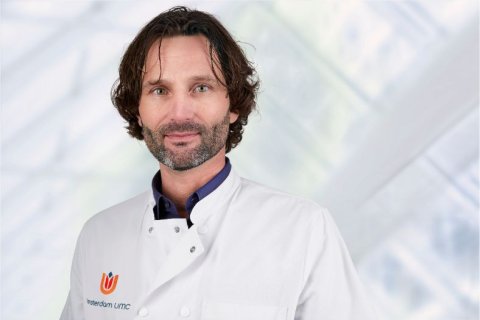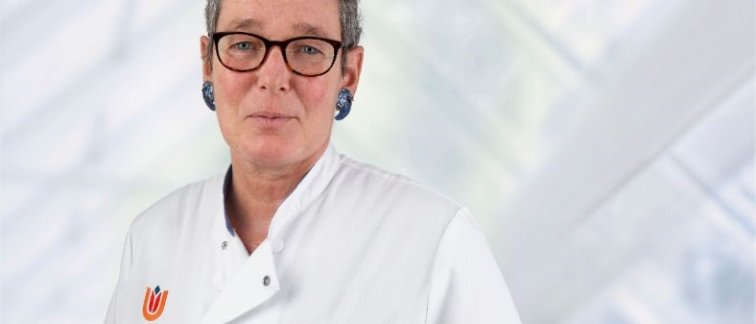The Lancet, one of the world's most renowned scientific journals, has published a profile article on Marceline Tutu van Furth, Chair in Paediatric Infectious Diseases at Amsterdam UMC, as being an inspiration to future medical leaders. The article details her path as a researcher, physician and mentor and shares more about her #IToo initiative which she founded with her wife, Mpho Tutu of Furth, to inspire women. Read the article written by Jocalyn Clark below or on the website of The Lancet.
Marceline Tutu van Furth is a trailblazer who came to understand her impact and role as a medical leader late in her career. She is Chair in Paediatric Infectious Diseases at the Vrije Universiteit Amsterdam, her alma mater, and one of the first female professors in this subspecialty in the Netherlands. With a PhD and MBA, she holds extra-ordinary professorships at the University of Stellenbosch, Cape Town, and at North-West University, Potchefstroom, in South Africa. She has spent some 40 years as a clinician and researcher in both the Netherlands and South Africa, where she also supervises PhD students.
Paediatric infectious disease
Inspiring others was not her initial calling, and one of the main focuses of her work at Vrije Universiteit Amsterdam, Amsterdam University Medical Center, has been infectious diseases among children. With evident passion, she shares: “I found my niche when I encountered a child with bacterial meningitis during my training as a doctor. I was so intrigued by this disease and by the fear it caused in the parents and my fellow doctors that I wanted to understand every inch of it.” Paediatric infectious disease is fascinating, she says, because the work lets her be “like a detective. Investigating but also employing empathy, working with families, and recognising the psychological and social dimensions of sickness.”
#IToo
She embarked on a traditional academic route of medical studies and research training, supported by her father, Ralph van Furth. “As a medical student, I recognised that the position and treatment of women in the hospital was different from those of men. At that time, I was too shy to address the discrepancies. My father was a professor of internal medicine who was very much a part of the old boys’ network. That made gender inequality difficult to talk about”, she recalls. However, she adds, other influences were present: “Subconsciously I have been infused with progressive ideas about women all my life. Both of my grandmothers were strong independent women.”
Over time, she says, her consciousness of inequalities was raised: “As I became older and wiser, especially after becoming a professor, I was often asked to be a mentor for students and colleagues. The topics I would discuss with my mentees were similar to the challenges I faced during my own training as a paediatrician. I found it very helpful to hear from and share with my colleagues the kind of difficulties we encountered and how we resolved them.” These reflections led to a strong commitment to mentorship. “Of course, in other parts of the world, the circumstances are very different for women. Sometimes it's simply a lack of access to Wi-Fi or internet connectivity that creates barriers. Other times it is difficulties in the social or household environment that prevent women from advancing, these have been made worse by the pandemic.”
In response, Marceline and her wife, Mpho Tutu van Furth, the daughter of the late Archbishop Desmond Tutu and his widow, Nomalizo, founded #IToo to inspire others. Having both achieved successes in fields that are traditionally unwelcoming to women—Marceline in medicine, Mpho in theology and the Christian ministry—they felt that their stories could be helpful to others. In The Lancet’s 2019 theme issue on advancing women in science, medicine, and global health, they explained: “#IToo would lay claim to women's ability to solve our problems. #IToo am willing to support girls. #IToo am willing to mentor young female learners. #IToo am willing to counsel, coax, and champion fledgling researchers in my field.” The #IToo platform has since grown into a web-based platform that connects women seeking mentorship with mentors—“like a dating site”, says Marceline. It also provides resources on topics such as how to mentor in a remote workplace. Marceline emphasises that the career issues women confront are not new problems and neither are the solutions. “But by telling our stories generation to generation, and woman to woman”, she says, “we can identify, learn, and hone the lessons and skills that enable us to create a world in which women and girls flourish.”
Find your niche, and pursue it with passion
She advises her current mentees, which include both women and men trainees and colleagues in the medical centre, to find their niche, and pursue it with passion. “Keep an open mind, look around you, and trust your gut feeling”, she says. “Don’t listen to all your fellow students or even senior doctors who want to make you insecure and want to compete with you.”
Her mentee and colleague Martijn van der Kuip, paediatrician at Amsterdam University Medical Center, has the following to say about Marceline:

Writing fiction and travelling
Having built a remarkable career, and at the age of 62 years, Marceline clearly intends to continue her professional activities. But she devotes much time to other passions, including fiction writing and travelling with her blended family. Together she and Mpho have four children and two grandchildren between the Netherlands and South Africa. Among her travel plans are to deliver on a pre-pandemic promise to take her eldest daughter to New York City and a trip to Trinidad and Tobago with her wife.
Source: This article was published by Scientific journal The Lancet, written by Jocalyn Clark.

